Team
The best science requires both specialized expertise and interdisciplinary collaboration. To better achieve this important balance while improving cost efficiency, RS designed a totally new decentralized scientific staffing model: field-leading academic experts from around the world work together alongside industry veterans on hyper-specialized virtual R&D teams.

About the RS Internal Leadership Team
RS is led by a multi-disciplinary team of drug discovery, data science, and venture capital veterans who have founded, built, and led biotech companies worth billions. The internal RS leadership team plays three important roles: 1) They lead end-to-end drug discovery for all RS companies and their drug programs; 2) They assemble and manage large teams of external researchers and drug discovery specialists; and 3) They build and lead valuable research and technology platform capabilities designed to empower all RS companies.
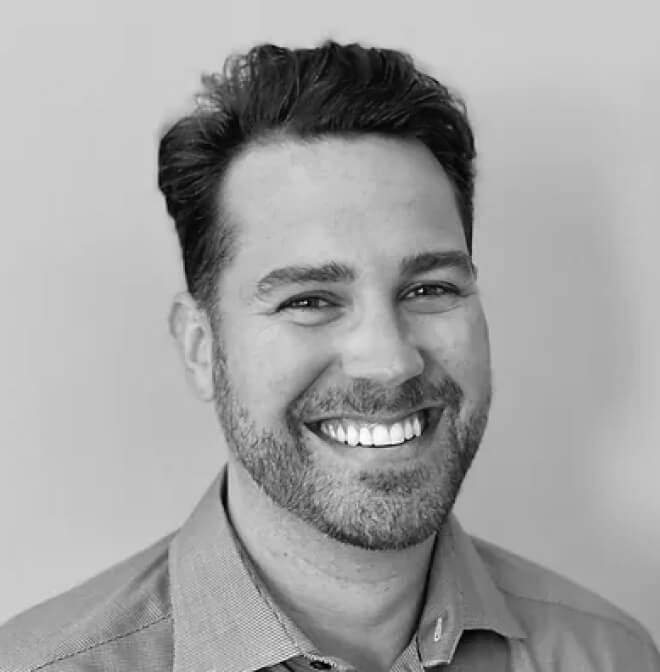

Adam Kolom is a biotech entrepreneur and private equity investor. Adam co-founded and led two of the world’s largest cancer immunotherapy research initiatives and has overseen more than $850 million in biotechnology and healthcare investments. Prior to founding Related Sciences, Adam co-founded Sean Parker’s $250 million nonprofit, the Parker Institute for Cancer Immunotherapy, where he worked closely with Sean designing the Institute, assembling its network of centers, building its roster of scientific talent, and leading over 40 biopharma partnerships. Before PICI, Adam was Managing Director of the Cancer Research Institute's venture capital fund and global clinical trials program, a member of the healthcare private equity team at General Atlantic, and a management consultant at McKinsey & Company. Adam graduated with honors from the Wharton School at UPenn with a degree in finance and economics.



Jack Milwid is a scientist, entrepreneur, and investor. As a founder of biotech companies worth billions, Jack has led R&D teams, invented platform technologies, and set strategy to create the next generation of life-saving medicines for patients. Prior to founding Related Sciences, Jack was a Principal at Flagship Pioneering, where he was a founder of the cell and gene therapy company Sana Biotechnology (SANA), a founder and leader of R&D for the targeted gene therapy company Cobalt Biomedicine, and the founding head of strategy for the microbiome therapeutics company Kaleido Biosciences. Before Flagship, Jack was an entrepreneur at Third Rock Ventures where he cofounded cancer neoantigen vaccine pioneer, Neon Therapeutics. Jack has a PhD in Health Sciences and Technology from Harvard and MIT.



Jeff Hammerbacher is a scientist, software developer, entrepreneur, and investor. Jeff has founded and led teams that have produced dozens of scientific publications with hundreds of citations per year, 3 of the world's most popular open source database systems, over 100 angel investments, and a public company with a market capitalization of several billion dollars. Prior to founding Related Sciences, Jeff was the Principal Investigator of Hammer Lab, a founder and the Chief Scientist of Cloudera, an Entrepreneur-in-Residence at Accel, the manager of the Data team at Facebook, and a quant at Bear Stearns. In addition to his work at Related Sciences, Jeff is an angel investor with Techammer and is a board member at Ciox and Cytel. Jeff has a bachelor's degree in Mathematics from Harvard University.

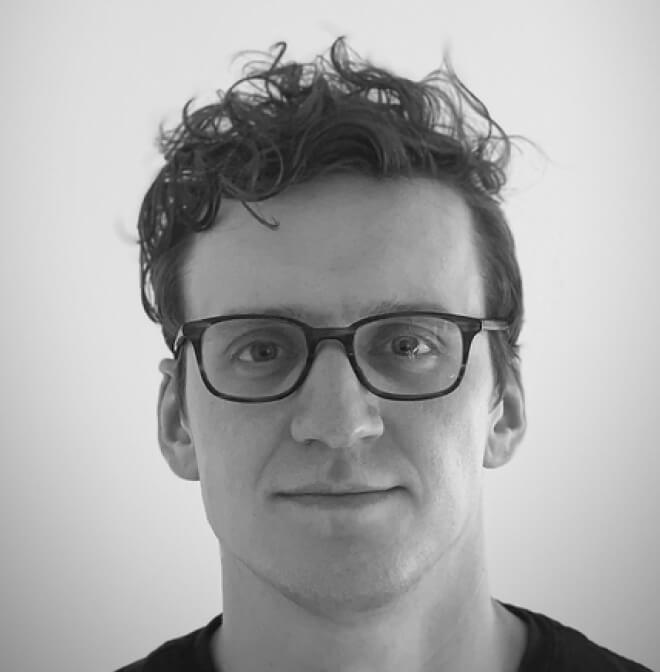

Rafał Wojdyła specializes in data engineering. Prior to Related Sciences Rafal worked at Spotify on data storage, processing and machine learning, and helped to build the largest processing cluster in Europe as well as a range of open and closed source libraries. Rafal graduated from the AGH University of Science and Technology with a degree in Computer Science.

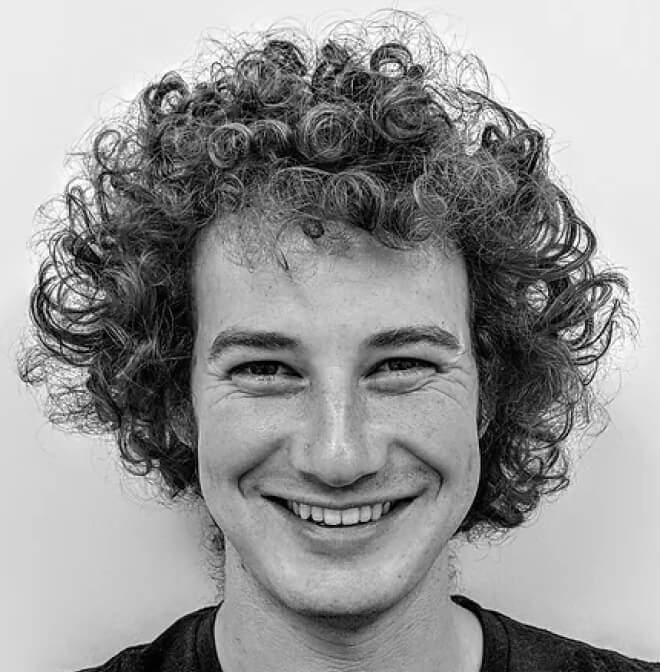

Daniel Himmelstein is a leading data scientist focused on integrating large scale omics data, turning biological knowledge into machine-optimized networks and databases. Prior to Related Sciences, Daniel created several projects to advance computational methods for biomedical knowledge including Hetionet and Manubot. Hetionet is an open-source network that combines data from 29 resources and millions of studies to capture the knowledge from decades of biomedical research. Manubot is a system for open writing on GitHub, allowing authors from around the world to collaborate in a transparent and automated manner. Daniel received his PhD in Biological & Medical Informatics from the University of California, San Francisco. As an undergraduate at Cornell University, he majored in Biometry & Statistics.

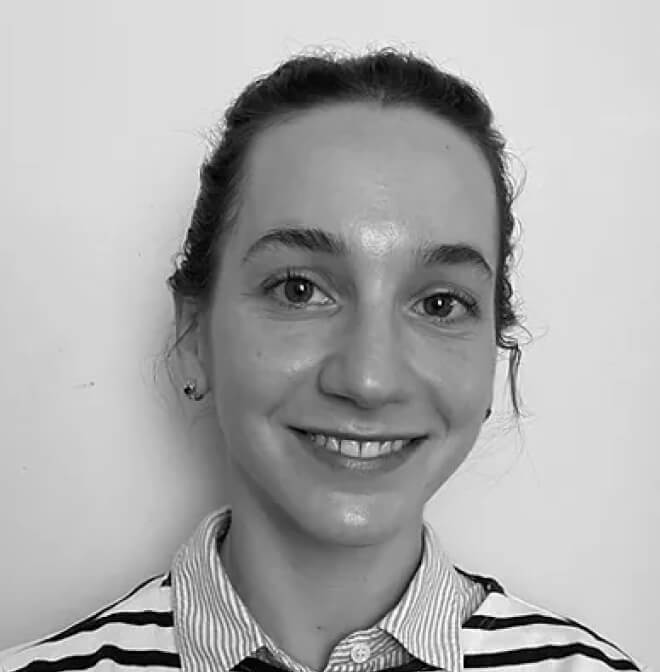

Jess Elman is a cellular and molecular biologist with deep expertise in preclinical models and drug development. Prior to Related Sciences Jess was a Senior Scientist at Sana Biotechnology where she helped bring several immuno-oncology therapeutics from early concept to IND enabling studies. Jess completed her PhD in Cell, Molecular and Developmental Biology at Tufts University.

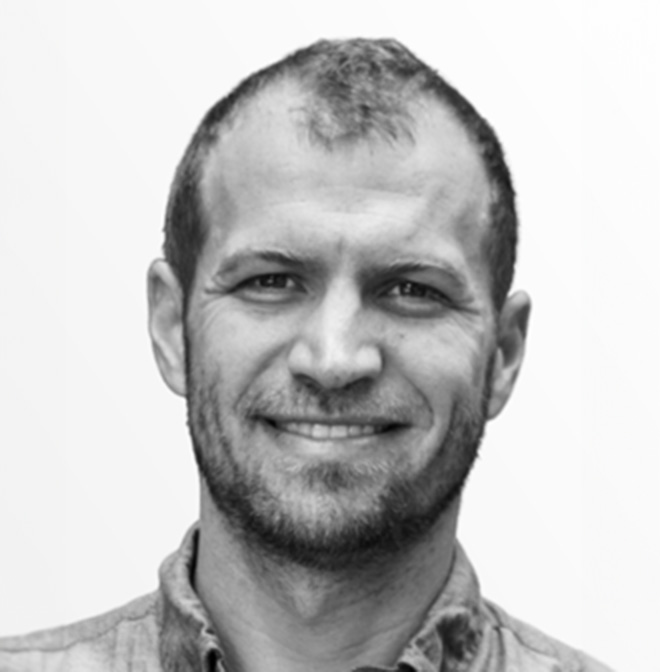
Dan is a software engineer with experience ranging from machine learning modeling to distributed systems. Prior to joining Related, he fought fraud as a Staff Engineer at Stripe, helped cities function better at Replica, and painstakingly shortened links by hand at Bitly. Dan holds a degree in Mathematics from Yale University.

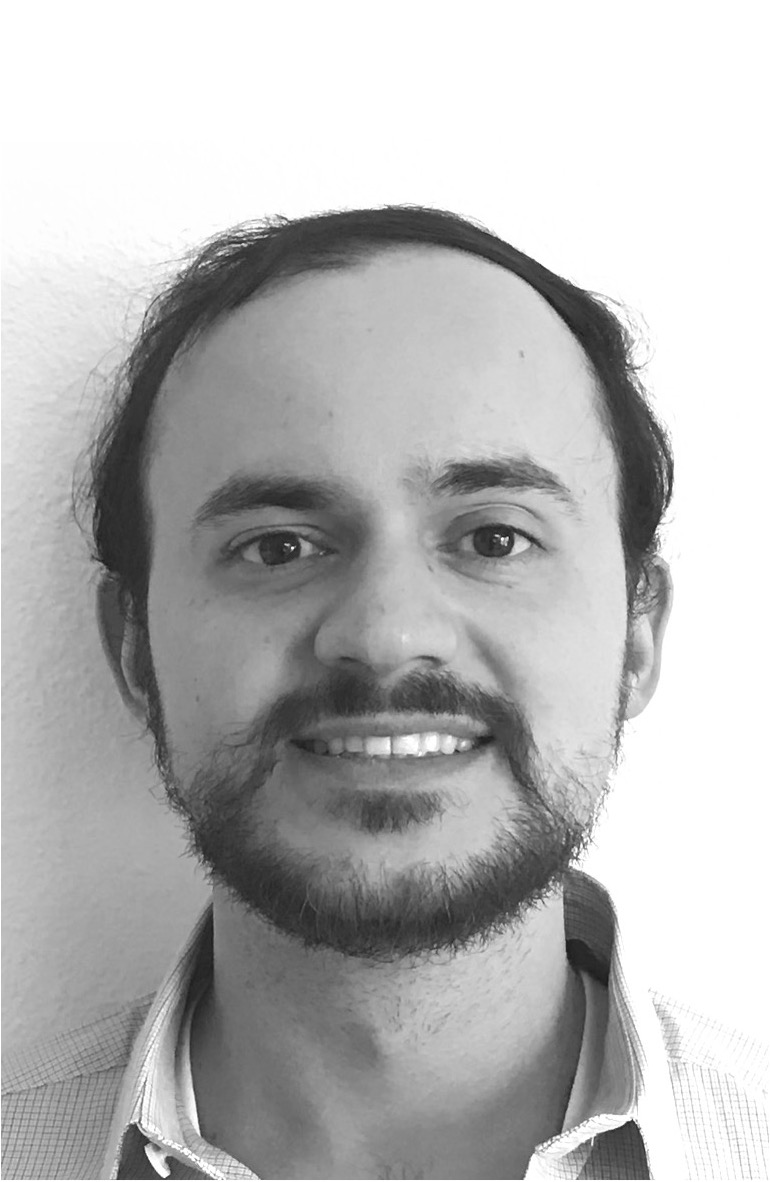
Nick specializes in data science and building analytic pipelines. Prior to joining Related Sciences, he worked on biomarker discovery by streamlining and executing statistical analyses on non-targeted liquid chromatography–mass spectrometry data at Sapient Bioanalytics. Nick majored in Bioengineering during his undergraduate studies at Cornell University and received his Master of Engineering degree from UC Berkeley.


Sara is a Danforth Operations HR partner with 13 years of experience managing HR programs and initiatives in a wide range of industries. She has spent the last 6 years in HR Operations roles within the Life Sciences Industry. Sara’s broad HR skill set includes experience in talent acquisition, performance management, Federal and multi- state compliance, and benefits management as well as HRIS and payroll administration. She specializes in creating scalable processes, managing through change, and cultivating positive company culture through HR initiatives that are strategically aligned with business objectives.


Ragunath Singaravelu is a virologist and cellular biologist with extensive experience in cancer immunology research and viral vector engineering. Prior to Related Sciences, Ragunath worked in the Canadian public health and regulatory sectors. His post-doctoral training includes fellowships in Katherine Fitzgerald's lab at UMassMed, where he studied innate immune signaling, and John Bell's lab at the Ottawa Hospital Research Institute, where he worked on pre-clinical development of novel COVID-19 vaccines and immunotherapies, including IND-enabling studies for an oncolytic virus candidate. Ragunath completed his PhD in Microbiology and Immunology at University of Ottawa.



Brett Treacy is a seasoned Financial Controller with broad-based accounting, finance, and analytical experience from senior roles in private equity, biotech, and public accounting firms. Prior to Related Sciences, Brett served as an external Controller for multiple startup biotech companies while working at Danforth Advisors. Brett previously also served as the Associate Director of Finance for Accent Therapeutics, the Director of Financial Planning and Analysis at Mondo, the Controller at Equity Resource Investments, and an Accounting Manager at Prague & Company. In these roles, Brett has been instrumental in building out multiple companies’ financial organizations, ensuring accurate and timely reporting of metrics, and providing growth-enabling leadership. Brett is currently completing his Master of Science in Taxation from Northeastern University and graduated with a Bachelor of Applied Science in Finance from Oakland University.


Dr. Altschuler is the managing director of Healthcare Ventures at Ziff Capital, where he co-leads the firm’s efforts towards investing in and facilitating the startup and development of companies with potentially transformative technologies that emphasize cellular and molecular approaches to human disease. Dr. Altschuler developed this expertise while cofounding Spark Therapeutics to develop and commercialize the preclinical and clinical gene therapy programs advanced at the Children’s Hospital of Philadelphia (CHOP) and other institutions. Dr. Altschuler served as Spark’s board chair from its founding through its acquisition by Roche in 2019. His tenure included leading the company through a successful transition to a public company and the launch of an approved commercial product. This was the first gene therapy for an inherited disease approved by the U.S. Food and Drug Administration and European Medicines Agency.
Dr. Altschuler is the former executive vice president for Health Affairs at the University of Miami and CEO of UHealth – the University of Miami Health System. He also served as CEO for CHOP from 2000 to 2015.
Dr. Altschuler completed a pediatric internship and residency at Children’s Hospital Medical Center in Boston and completed a fellowship in gastroenterology and nutrition at CHOP. He also served as a faculty member and chair of the Department of Pediatrics at the Perelman School of Medicine at the University of Pennsylvania prior to becoming CEO of CHOP.
Dr. Altschuler is a member of the board of directors of WW (formally Weight Watchers International), Orchard Therapeutics, AsclepiX Therapeutics, ImVaX inc. and Platelet Biogenesis. He is also an independent trustee of the Brigham and Women’s Physician Organization at Mass General Brigham.
Dr. Altschuler holds a BA in mathematics and an MD from Case Western Reserve University.

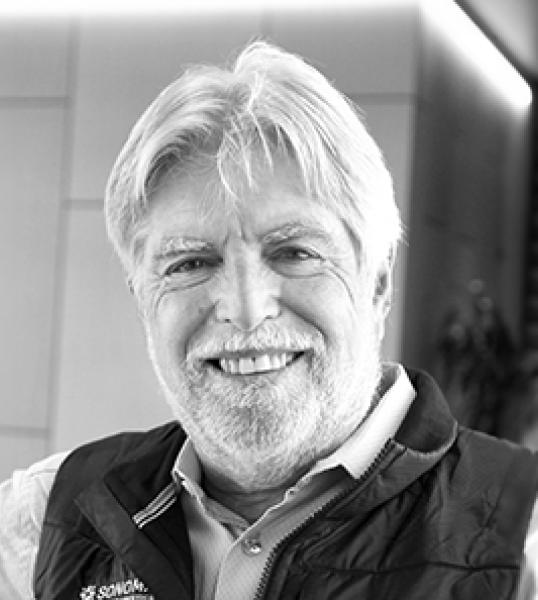
Jeffrey Bluestone, Ph.D. is one of the leading immunologists in the field of T-cell activation and immune tolerance research that has led to the development of multiple immunotherapies, including the first FDA-approved drug targeting T-cell co-stimulation to treat autoimmune disease and organ transplantation and the first CTLA-4 antagonist drugs approved for the treatment of metastatic melanoma.
Dr. Bluestone is the President and Chief Executive Officer of Sonoma Biotherapeutics, Inc., a role he has held since 2019. From 2015 to 2019, he led the Parker Institute for Cancer Immunotherapy as President and Chief Executive Officer. Dr. Bluestone is the A.W. and Mary Margaret Clausen Distinguished Professor in the Diabetes Center at University of California San Francisco, where he has been a member of the faculty and served in various other roles for over 20 years, including the Director of the Diabetes Center from 2000 to 2019. He is an international leader in the field of immunotherapy and has published more than 500 papers over nearly four decades focused on understanding the basic processes that control T-cell activation and immune tolerance in autoimmunity, organ transplantation and cancer. His research has led to the development of multiple immunotherapies, including the first medicine approved by the U.S. Food and Drug Administration (FDA) targeting T-cell co-stimulation to treat autoimmunity and the first FDA-approved checkpoint inhibitor for the treatment of metastatic melanoma and other cancers. Dr. Bluestone was the founding director of the Immune Tolerance Network, the largest National Institutes of Health-funded multicenter clinical immunology research program, testing novel immunotherapies in transplantation, autoimmunity and asthma/allergy. He served as a member of the Blue Ribbon Panel, appointed by then Vice President Joe Biden, to guide the National Cancer Moonshot Initiative. Dr. Bluestone is a member of the National Academy of Medicine and American Academy of Arts and Sciences, was a recipient of the prestigious Guggenheim Fellowship, and previously served as the Ludwig Professor and Director of the Ben May Institute at the University of Chicago. He currently serves on the board of directors of Gilead and Provention Bio, Inc.


Ian has more than 35 years of experience in the biotechnology and pharmaceutical industry, most recently serving as CEO and a member of the board of directors for Genentech, a member of the Roche Group, until his retirement in 2016. During his seven-year tenure as CEO, Ian and his team brought 11 new medicines to market for patients fighting rheumatoid arthritis, idiopathic pulmonary fibrosis and various types of cancer. Ian was among the highest rated CEOs by Glassdoor, recognized as the Bay Area’s most admired CEO by the San Francisco Business Times and awarded the Honorable Mentor of the Year by the Healthcare Businesswomen’s Association. Prior to joining Genentech, Ian held various positions of increasing responsibility at Novartis, Sanofi, Ivax and Searle, working in the USA, UK, Canada, Eastern Europe and France.
Currently, Ian is on the board of directors of Takeda, Agios Pharmaceuticals, Guardant Health and Corvus Pharmaceuticals, and serves as chairman of the board of Olema Oncology. He is an operating partner of Blackstone Life Sciences and a member of the BioFulcrum Board of the Gladstone Institutes. Ian previously served on the boards of Shire, Kite Pharma, Dendreon, Solazyme, Forty Seven and Vernalis. He was also on the board of Biotechnology Industry Association and on the Economic Advisory Council of the 12th District of the Federal Reserve.
Ian received his BS in biological sciences and an honorary DSc from Southampton University in the United Kingdom.


David Epstein is CEO of Seagen, a company that discovers, develops, manufactures, and commercializes targeted cancer therapeutics with antibody-drug conjugates at its core. During David’s tenure at Seagen, its portfolio of innovative cancer medicines has grown significantly, and he prioritized its research and development focus and plans for continued growth, including an expanded presence globally. These strategies were exponentially accelerated by the pending merger of Seagen with Pfizer, a negotiation David led in partnership with Seagen’s board of directors, and which is expected to close late in 2023 or early in 2024, subject to customary closing conditions and receipt of required regulatory approvals. David is also a board member at Valo Health, a company using technology to reimagine drug discovery and development, and Opy Acquisition Corp, a life sciences investment company. Throughout his career, David has focused his deep biopharmaceutical experience and expertise to bring urgency to improve and extend the lives of patients.
From early-2010 to mid-2016, David served as chief executive officer of Novartis Pharmaceuticals, a division of Novartis AG. Previously, David started and led Novartis’ Oncology and Molecular Diagnostic units. Under his leadership the company’s oncology business grew to the second largest in the world.
David’s experience also extends to early-stage discovery and innovation. He served as a consultant to Flagship Pioneering, a developer of bioplatform companies, Invus and several other firms. He has served as Chairman at Rubius Therapeutics, Axcella Therapeutics, Evelo Bio and as a board member at Ring Therapeutics, Tarus Therapeutics until its successful sale in June 2022, Senti Bio, Woosley Pharma and Cellestia AG.
David has more than 30 years of extensive drug development, deal making, commercialization and leadership experience on a global scale. Over the course of his career, he led the development and commercialization of over 30 new molecular entities, including major breakthroughs such as Glivec, Tasigna, Gilenya, Afinitor, Cosentyx and Entresto. His teams developed 3 Prix Galien award winning medicines and he has developed several CEOs. He was also recognized by FierceBiotech as one of the “25 most influential people in biopharma.”
David is also a director at the non-profit he and his wife Melissa established, the Three Opinions Foundation, dedicated to improving the world with a focus on the environment and health, and at South Florida’s Pelican Harbor Seabird Station (PHSS). PHSS is Miami’s premier native wildlife hospital dedicated to the rescue, rehabilitation, and release of sick, injured, or orphaned brown pelicans, seabirds, and other native wildlife thus enabling future generations.


Dr. George Golumbeski has over 30 years of experience in the pharmaceutical / biotechnology industry. He is currently focused on new company creation and new company building. He is working on these objectives as a partner at DROIA Ventures where he focuses on “NewCos” dedicated to therapies for genetically defined diseases. He also serves as a Director for Sage Therapeutics, Vice-Chair of the Supervisory Board of MorphoSys, and Chair of the Board for Carrick Therapeutics & Shattuck Labs.
For nearly a decade, George was Executive Vice President of Business Development for Celgene where he was responsible for the full array of business development including in-licensing, strategic collaborations, M&A, out-licensing, and alliance management.
His fundamental mission at Celgene was to forge collaborations with biotechnology companies seeking to bring breakthrough medications to people suffering from cancer and chronic inflammation. To realize this goal, George developed new models for corporate collaborations, and led a business development effort that saw Celgene become “Partner of Choice” according to Boston Consulting Group Survey data.
Prior to Celgene, George was Vice President of Business Development, Licensing and Strategy at Novartis. Prior to Novartis, he was Vice President of R&D Business Development at Elan and Vice President of Corporate Development at Schwarz Pharma, where he led CNS acquisitions worldwide.
George holds a B.A. in Biology from the University of Virginia, a Ph.D. in Genetics from the University of Wisconsin-Madison, and he conducted his post-doctoral research in molecular biology at the University of Colorado-Boulder.
Finally, George is committed to conservation; therefore, he serves as Vice-Chair of the Board of Directors of the National Audubon Society, and he is an avid nature photographer (golumbeskiphotography.com).


Ramy Ibrahim has more than two decades of drug development experience working in academia, major pharma companies, midsize, startups, and nonprofit organizations. He worked across different therapeutic areas and has expertise with a wide scope of modalities, including immuno-oncology, targeted therapies, and iPSCs. He led teams working both on advancing early-stage therapies (first-in-man studies) and global teams in charge of designing and executing registrational studies. He helped develop some of the first breakthrough treatments in the field during his tenure at Bristol-Myers Squibb and MedImmune/AstraZeneca, including the global approval of the first checkpoint inhibitor (Yervoy) and advancing the use of immunotherapy into the early stages of disease.
At BMS, Ramy was an integral member of the team that developed and ultimately achieved the regulatory approval of the first checkpoint inhibitor that paved the way for immuno-oncology to become the fourth pillar of cancer therapy. He contributed to the early development of PD1 (nivolumab), 41BB, and OX40. He contributed to growing the IO portfolio at MedImmune/AstraZeneca and built the clinical team that ran multiple global registrational studies with IO therapies both as single agents and in combinations.
In 2016, Ramy joined the Parker Institute for Cancer Immunotherapy as their founding CMO, where he built a translational, regulatory, and clinical development team that worked with leading immuno-oncology scientists to develop products, INDs, and company creation based on IP generated by Parker investigators, innovators, and scientists. In 2020, he was named a director to the Board of the institute, where he continues to support the ongoing efforts and initiatives. In 2020, he joined bit.bio, a synthetic biology, clinical-stage company that's pioneering iPSCs reprogramming as their first CMO and US president. He played a key role in the fundraising efforts and setting the clinical strategy for their lead programs across different therapeutic areas.
Ramy served as a director/board member of cell and gene therapy organizations, including bluebird bio, 2Seventy bio, and the Parker Institute for Cancer Immunotherapy. He is a board member and chairman of the R&D committee at Surface Oncology. Currently, Ramy is focusing on company creation and advising different startups


Jeff Kindler serves as Chief Executive Officer of Centrexion Therapeutics, a company focused on developing safe and effective, non-addictive treatments for chronic pain.
Kindler is also a Senior Advisor to Blackstone, one of the world’s leading investment firms, and an Operating Partner at Artis Ventures, a leading venture capital firm. He also serves on the boards of Perrigo, an international manufacturer of private label over-the-counter pharmaceuticals; Precigen, a biotechnology company; and Terns Pharmaceuticals, a clinical stage biopharmaceutical company. He also serves as a director or advisor to several private health care firms.
Kindler was formerly the Chairman and Chief Executive Officer of Pfizer, the world's largest research-based biopharmaceutical company, which he joined in January 2002. Previously senior executive at General Electric and at McDonald’s Corporation. Prior to GE, Kindler practiced civil and criminal litigation as a partner at the Washington D.C. firm of Williams & Connolly.
Kindler earned his BA in 1977 from Tufts University summa cum laude and his JD in 1980 from Harvard magna cum laude, where he was an editor of the Harvard Law Review.



John Monroe, phd is an Emeritus Professor at the Perelman School of Medicine at the University of Pennsylvania. Most recently he led Genentech’s Immunology Discovery Department, and was responsible for new target discovery and pre-clinical validation. He also headed the Genentech Immunology Precision Medicine Department and determined precision medicine strategies and early clinical validation of biomarkers for patient selection. He was a tenured Professor at the University of Pennsylvania School of Medicine where for over 20 years he oversaw a research lab and published seminal papers in the field of B lymphocyte biology and immune cell tolerance.
Dr. Monroe received his Ph.D. In Immunology from Duke University studying immune cell receptor signaling and did a post-doctoral fellowship at Harvard Medical School studying T cell modulation of immune responses. He is a former Vice Chair for Research in the Department of Pathology at UPENN and directed their Cancer Immunology Program. He has served on many review committees and editorial boards including as Deputy Editor for Immunological Reviews.


D.A. Wallach is General Partner of Time Bioventures, a leading biotech venture capital fund.
D.A. is a venture capital investor and an acclaimed recording artist who Fast Company named one of the 100 Most Creative People in Business. While an undergraduate at Harvard, D.A. studied with professor Henry Louis Gates, Jr., and received the Andrew Ramroop and Alain Locke prizes as the top graduate in his department. Prior to leaving school, Pharrell Williams discovered D.A.’s band Chester French and signed the group to Interscope Records, where they released two full-length albums. He has toured with Lady Gaga, Weezer, and Blink 182, performed on TV Shows including Jimmy Kimmel Live and Late Night with Jimmy Fallon and appeared in Rolling Stone and Vogue.
In 2011, D.A. stopped touring in order to focus on his other passion, investing. He has since built a parallel career as a venture capitalist, backing a series of industry-defining technology companies including Spotify, SpaceX, Ripple, The Boring Company, and Memphis Meats. Since 2015, D.A. has focused on biotechnology and healthcare, seeking to reinvent medicine through breakthrough start-ups like Beam, Glympse, Doctor on Demand, Devoted Health, and Neuralink. As co-founder and General Partner of Time BioVentures, he brings this experience to a new generation of talented entrepreneurs in the life sciences.
Outside of work, D.A. appeared as an actor in the film La La Land, which received 14 Academy Award nominations. He publishes essays on a range of topics on his website www.dawallach.com, and is the co-founder of the non-profit Franca Fund for preventive genomics, an advisory board member of No Patient Left Behind, and a member of the Board of Trustees of the Santa Fe Institute.

About the RS External Leadership and Model
RS brings together globally distributed field-leading experts from both academia and industry to work together on specialized R&D teams tailored to the unique needs of each drug program or research area. In contrast to a traditional biotech's Scientific Advisory Board, each RS "Biology/Clinical/Informatics Lead" plays a more active, significant, and engaging role in shaping RS science and drug discovery strategies. Working on an ongoing basis alongside other eminent peers from complementary fields, each RS Lead acts like a "fractional CSO/CMO" to one or more drug discovery programs of high relevance to their broader academic interests, creating a productive new mode for top scientists to participate in industry R&D without having to leave academia.
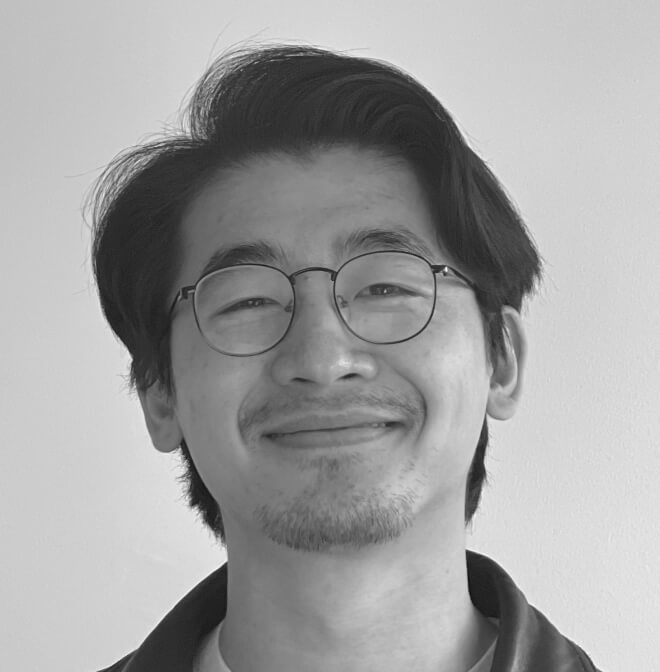

Kevin Bi is a computational biologist specializing in single cell profiling and immuno-informatics. He is a staff scientist in the Department of Medical Oncology at the Dana-Farber Cancer Institute, where his work focuses on identifying immune evasion mechanisms in the microenvironment of renal cell carcinoma. He has also worked in preclinical models to characterize subsets of exhausted T cells mediating the response to checkpoint blockade immunotherapy. Kevin graduated from Columbia University with a Bachelor of the Arts in Biochemistry.

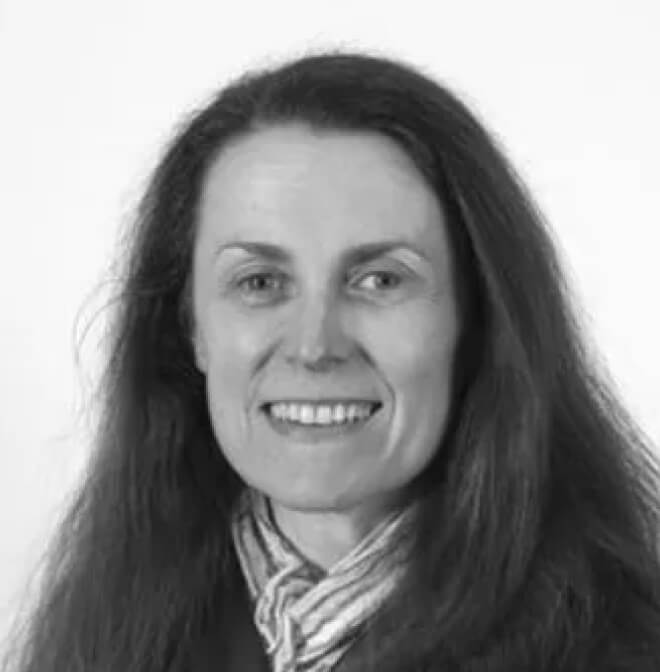

Clare Bryan is Professor of Innate Immunity at the University of Cambridge in the UK. Clare uses multi-disciplinary approaches to study how Pattern Recognition Receptors signal in response to infectious and non-infectious stimuli. She is internationally recognized for her cutting-edge research to understand the mechanisms of formation, and the composition of, the large signaling complexes triggered by Pattern Recognition Receptor activation. This research focusses on understanding the fundamental mechanisms by which Toll-like receptors and inflammasomes signal to integrate inflammatory processes with a view to developing new treatments for infectious and inflammatory diseases. She has published extensively, is a highly cited scientist, has served on editorial boards (including the Journal of Immunology, The Journal of Biological Chemistry and EMBO) and is a Fellow of the British Pharmacology Society. She has broad interactions with industry including spending time on sabbatical at Genentech and GSK, serving on Biotech scientific advisory boards, consultancy work with pharma and translating her own research in a drug discovery project with Apollo Therapeutics.

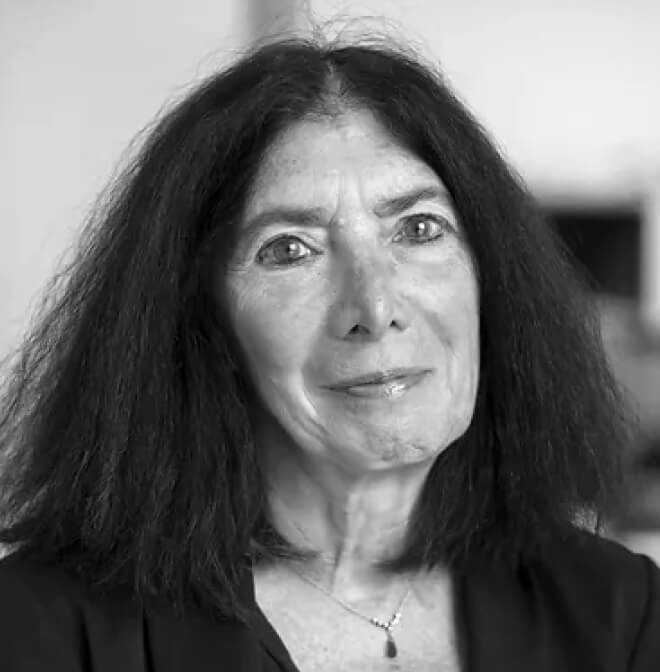

Dr. Jill Buyon is the Sir Deryck and Lady Va Maughan Professor of Rheumatology, Director of the Division of Rheumatology at New York University Grossman School of Medicine, and Director of the NYU Lupus Center. She is a researcher and clinician specializing in the treatment of systemic lupus erythematosus, neonatal lupus, and rheumatic diseases in pregnancy. Dr. Buyon has received the Distinguished Clinical Investigator Award as well as Master distinction from the American College of Rheumatology, the Evelyn V Hess Lifetime Achievement Award for Research in Lupus from the Lupus Foundation of America, and the Halsted R. Holman Award for Excellence in Clinical Research. She is an active member of the Association of American Physicians. She has had continuous NIH funding for over two decades.
Dr. Buyon led the first multicenter study in SLE which resulted in a paradigm change with regard to the safety of exogenous estrogens in women of reproductive age and those postmenopausal. The SLE activity index SELENA-SLEDAI and the flare index were both generated as part of this study and are instruments widely used in current FDA registrational trials. She led the “Preventive Approach to Congenital Heart Block with Hydroxychloroquine (PATCH)” trial and held a MERIT grant on the pathogenesis of anti-Ro associated congenital heart block. She has initiated an NIH-funded study, “Surveillance and Treatment to Prevent Fetal Atrioventricular Block Likely to Occur Quickly (STOP BLOQ),” which is a multi-site clinical trial evaluating the efficacy of home fetal heart rate and rhythm monitoring. She continues to operate the national Research Registry for Neonatal Lupus, which she founded in 1994 and which has generated the bulk of evidence-based information on this disease. She was an mPI for a grant through the Accelerating Medicines Partnership (AMP) titled “Multi-Ethnic Translational Research Optimization (METRO) Lupus Consortium,” and now serves as the lead of the Lupus disease team in program’s second iteration, AMP AIM (AMP Autoimmune and Immune Mediated Diseases) on a grant titled “Lupus Omics Cutaneous Kidney Investigative Team (LOCKIT).” She directs the COMPEL (“Translational Center of Molecular Profiling in Preclinical and Established Lupus”) P50.



Yanick Crow is a clinician-scientist and Fellow of the Academy of Medical Sciences. He is a practicing Clinical Geneticist, and has developed a research interest in monogenic disorders associated with an up-regulation of type I interferons - a set of inborn errors of immunity resulting from abnormal sensing, inappropriate stimulation, or defective negative regulation of the type I interferon system. Understanding of these so-called type I interferonopathies has the potential to provide insights into immunological homeostasis, mechanisms of self / non-self discrimination and viral immunity. Importantly, this work is also leading to novel therapeutic strategies aimed at treating this devastating group of diseases.

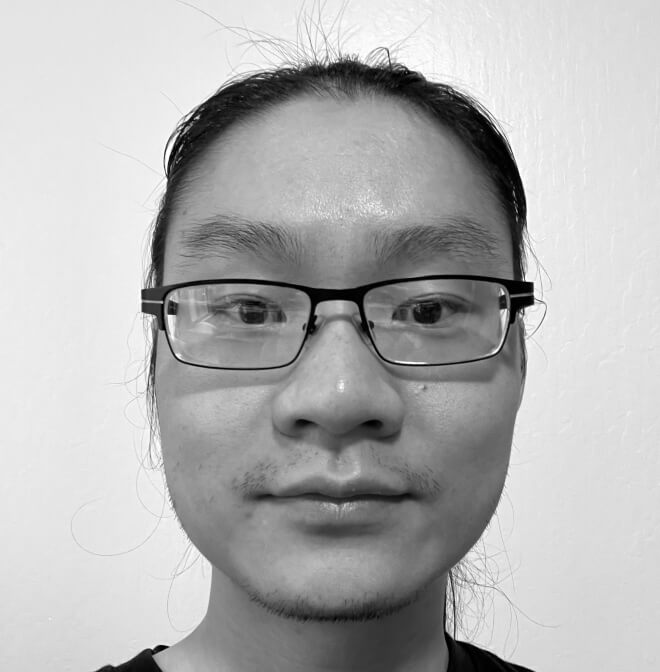

Peter Du is a computational biologist working on uncovering mechanisms of cancer immune escape using statistical and machine learning methods. Previously, he worked at the Broad Institute to discover immune resistance mechanisms using high throughput functional genomics. Peter received his undergraduate degree from Princeton University in Molecular Biology with a certificate in Neuroscience and is currently a graduate student at Stanford University.



Dr. Fitzgerald is Professor of Medicine, Director of the Program in Innate Immunity, and the Worcester Foundation in Biomedical Sciences Chair at the University of Massachusetts Chan Medical School. Her work is focused on the innate immune system aimed at understanding the molecular basis of the inflammatory response in both normal responses (eg. Infection) and disease. The long-term goal of her work is to determine how innate immune sensing and signaling contribute to infectious, inflammatory, and autoimmune diseases in humans.
Dr. Fitzgerald completed all of her education in Ireland. She received her B.Sc. in Biochemistry in 1995 from University College Cork, Ireland and her PhD in Biochemistry in 1999 from Trinity College Dublin, Ireland. After pursing a post-doctoral fellowship at Trinity College Dublin, she joined UMass Chan as Instructor and is currently a tenured Professor.
Dr. Fitzgerald is an elected fellow of the American Society of Microbiology and was recently elected to the Royal Irish Academy, the National Academy of Sciences and the National Academy of Medicine. She has also received several awards including the Thermo-Fischer Meritorious Career Award (from the American Association of Immunology), the Saint Patrick’s Day Medal (from the Irish Government and Science Foundation Ireland), the Milstein Award for Excellence in Interferon and Cytokine research (from the International Cytokine and Interferon Society), amongst others.
She has extensive service both locally at UMass Chan and nationally including service on local and national advisory boards (e.g., Massachusetts Center For Pathogen Readiness, NIAID Board of Scientific Councillors, Burroughs Wellcome Fund Pathogenesis of Infectious Diseases and the Cancer Research Institute). She was also the recent past President of the International Cytokine and Interferon Society.



Dr. Nir Hacohen is the Director of the Center for Cancer Immunology at Massachusetts General Hospital, and the David P. Ryan Professor of Medicine at Harvard Medical School. He is the Director of the Center for Cell Circuits at the Broad Institute of MIT and Harvard. Dr. Hacohen is a recipient of the NIH Director’s Innovator award, the MGH Scholars Award and the Martin Prize. He completed his Ph.D. at the Stanford Biochemistry Department, and was a fellow at the Whitehead Institute at MIT. Dr. Hacohen developed an international workshop for advancing the careers of young cancer immunologists. He also founded Neon Therapeutics, which is now part of BioNTech.
Dr. Hacohen has pioneered systems biology tools that generate comprehensive cellular and molecular models of immunological processes and enable personalized immunotherapies. In the area of cell-level systems biology, he carried out genome-wide genetic screens in primary immune cells and identified genetic variants, transcription factors, chromatin regulators, signaling proteins, RNA and protein synthesis-degradation mechanisms and splicing factors driving the sensing of pathogens by myeloid cells. In the area of cell type discovery, he contributed to the human cell atlas by discovering new immune cell types, including human dendritic cell subsets and their progenitors as well as T cells and their differentiation states. He also identified cell states associated with disease in bacterial/viral sepsis, lupus nephritis and cancer immunity, and discovered spatially-organized immune cell structures in tumors. In the area of cancer vaccines, he created machine-learning based methods to predict cancer antigens, and developed the first personalized approach to immunotherapy using vaccines that target patient-specific tumor neoantigens. This led to clinical trials in melanoma and glioblastoma multiforme, demonstrating induction of tumor-specific T cells that kill malignant cells and that are durable for many years. His lab is currently working on using systems-level technologies to understand mechanisms of human immune diseases and model them in mice, with the goal of catalyzing new therapeutic strategies.



Dr. Ishizuka is Assistant Professor of Medicine, Immunobiology and Pathology at Yale School of Medicine. He is the principal investigator of a basic and translational immuno-oncology laboratory and a practicing medical oncologist at Yale Cancer Center. He completed his D.Phil. in Immunology at Oxford University and the National Institutes of Health on a Rhodes Scholarship. He subsequently pursued his medical doctorate at Harvard Medical School and the Massachusetts Institute of Technology, internal medicine residency at Brigham and Women’s Hospital and a fellowship in medical oncology at the Dana-Farber Cancer Institute. His laboratory focuses on defining and targeting mechanisms of tumor inflammation to improve immunotherapy with a particular focus on triggering dsRNA sensing pathways, the use of functional genomics to identify novel therapeutic targets and the development of new human translational approaches. He has helped to initiate and develop or served as scientific advisor to several oncology and immuno-oncology companies including Jounce Therapeutics, Kronos Bio and Tango Therapeutics.


Dr. Kahlenberg is the Giles Boles and Dorothy Mulkey Research Professor of Rheumatology, Vice Chair of Basic and Translational Research, and a Professor of Internal Medicine and Dermatology at University of Michigan Medical School.
She completed her BS in Biology (Summa Cum Laude) at Denison University, her MD, PhD, and Internal Medicine training at Case Western Reserve University and her fellowship in Rheumatology at the University of Michigan. Her clinical work is centered on the care of complicated lupus patients, including those with refractory skin disease. Her independent research laboratory (est. 2013) is funded by multiple NIH (including R01) and foundation awards and combines translational approaches using patient samples and murine models to uncover the mechanisms that drive lupus and other autoimmune diseases. In particular, she is focused on unraveling the pathogenic mechanisms in cutaneous lupus, the factors that drive photosensitivity, and how skin inflammation can influence systemic lupus activity. She has published 108 papers in high impact journals including Science Translational Medicine, JCI and Nature Immunology. Seminal discoveries from her lab include the role for IFN-kappa and of dysfunction of “normal” keratinocytes in lupus skin disease. As a testament to her impact within lupus research, her work has received institutional accolades, including being named the inaugural Giles Bole and Dorothy Mulkey Research Chair in Rheumatology at U-M, and national recognition from the Arthritis National Research Foundation, The Rheumatology Research Foundation, and the Lupus Foundation of America. In addition, in 2018, she was awarded a PECASE, the top award given by the President of the United States to outstanding early career scientists and engineers. In 2022 she was named an American College of Rheumatology Henry Kunkel Young Investigator awardee, the top award for early physician scientists in Rheumatology. In 2023, she was admitted into the Henry Kunkel Society. In her spare time, she enjoys organic gardening, working on the family farm “EMMA Acres” run by her husband, Mark, and spending time with her husband and children.



Jonathan Kay, MD, is Professor of Medicine and Population and Quantitative Health Sciences and holds the Timothy S. and Elaine L. Peterson Chair in Rheumatology at the UMass Chan Medical School in Worcester, where he directs Clinical Research in the Division of Rheumatology and is Associate Director of the Medical Scientist Training Program (MSTP)-funded MD/PhD Program. His clinical appointment is as a Physician at UMass Memorial Medical Center, also in Worcester. He received his medical degree from the University of California School of Medicine in San Francisco, California. He then completed an internship and residency at the Hospital of the University of Pennsylvania in Philadelphia and fellowships in rheumatology and immunology at the Brigham and Women’s Hospital and Harvard Medical School in Boston, Massachusetts.
Dr. Kay is a Fellow of the American College of Rheumatology and of the American College of Physicians. In 2018, he received the Distinguished Service Award from the American College of Rheumatology and he was awarded honorary membership in EULAR. He is an ad hoc reviewer for many journals and a member of the editorial board of RMD Open.
Dr. Kay’s clinical interests span the spectrum of rheumatic diseases, with special interest in rheumatoid arthritis, spondyloarthropathies, and other forms of inflammatory arthritis. He was a member of the group that developed the 2010 ACR/EULAR Diagnostic and Classification Criteria for Rheumatoid Arthritis. He chaired the Rheumatology Working Group and was a member of the Internal Medicine and Musculoskeletal Topic Advisory Groups for the World Health Organization in its Revision of the International Classification of Diseases (ICD)-11.
Over the past three decades, his clinical research has focused on nephrogenic systemic fibrosis (formerly known as nephrogenic fibrosing dermopathy), β2-microglobulin amyloidosis, and other rheumatologic problems of patients with chronic kidney disease. He has been a principal investigator on over 60 clinical trials of novel therapies for rheumatoid arthritis, axial spondyloarthritis, systemic lupus erythematosus, gout, and osteoarthritis. Over the past decade, he has been involved in the development of biosimilars to treat rheumatic diseases. Dr. Kay lectures internationally and is the author of more than 260 publications and book chapters.



Dr. Andy Minn is a Professor in the Department of Radiation Oncology and an Investigator in the Abramson Family Cancer Research Institute at the University of Pennsylvania. He is also Director of the Mark Foundation Center for Immunotherapy, Immune Signaling, and Radiation, and a project member in the Parker Institute for Cancer Immunotherapy. He received his MD and PhD from the University of Chicago and finished his residency in radiation oncology along with his post-doctoral training at Memorial Sloan-Kettering Cancer Center. His research seeks to understand key mechanisms of cancer immunotherapy resistance. Specifically, his work focuses on the role of pattern recognition receptors and interferon signaling pathways, which are pathways that are typically activated when normal cells become infected with a virus. Surprisingly, cancers and many cancer therapies also can activate these pathways, prompting an interest in understanding how this happens, the impact on anti-tumor immunity, and its clinical significance. An overarching goal is to translate this understanding to better inform the design of clinical trials. Dr. Minn’s work has been published in prestigious scientific journals such as Cell, Immunity, and Nature. He is also a member of the American Society for Clinical Investigators (ASCI).



Yorgo Modis is Professor of Virology and Immunology at the University of Cambridge in the UK.
Yorgo’s research focuses on understanding the fundamental mechanisms of enveloped RNA virus assembly, cell entry, and innate immune recognition. By integrating macromolecular structure determination with multiscale imaging and functional assays, his work has uncovered the molecular mechanisms underlying key steps of infection and antiviral immune responses.
Yorgo’s early work established how class II envelope glycoproteins, found in many virus families including important human pathogens, drive fusion of the viral and cellular membranes, a crucial cell-entry step. His widely cited studies on flavivirus membrane attachment and fusion (PNAS:2003; Nature:2004a; J.Virol:2005, J.Virol:2006) have become textbook knowledge (Fields Virology) and sparked much new research. He also contributed to the first structure determination of a protein translocation channel (Nature:2004b).
More recently, Yorgo discovered how RNA delivered into cells by enveloped RNA viruses including SARS-CoV-2 is recognized and distinguished from cellular RNAs with the necessary sensitivity and specificity by a molecular proofreading mechanism by the innate immune sensor MDA5 (Mol.Cell:2018; EMBO J.:2012; PNAS:2012). He showed how genetic variants can cause MDA5 to misrecognize endogenous RNA as viral RNA to cause autoinflammatory disease (Nat.Commun.:2021).
In parallel, Yorgo has shown how structural and chromatin-modifying properties of the transcriptional repressor complexes HUSH and KAP1 provide a newly recognized type of innate immune response by epigenetically regulating the expression of viral genes and endogenized sequences in human chromatin (Nucleic Acids Research:2020; Nat.Commun.:2020; PNAS:2019; Nat.Commun.:2018; Nat.Genet.:2017).



John Monroe, phd is an Emeritus Professor at the Perelman School of Medicine at the University of Pennsylvania. Most recently he led Genentech’s Immunology Discovery Department, and was responsible for new target discovery and pre-clinical validation. He also headed the Genentech Immunology Precision Medicine Department and determined precision medicine strategies and early clinical validation of biomarkers for patient selection. He was a tenured Professor at the University of Pennsylvania School of Medicine where for over 20 years he oversaw a research lab and published seminal papers in the field of B lymphocyte biology and immune cell tolerance.
Dr. Monroe received his Ph.D. In Immunology from Duke University studying immune cell receptor signaling and did a post-doctoral fellowship at Harvard Medical School studying T cell modulation of immune responses. He is a former Vice Chair for Research in the Department of Pathology at UPENN and directed their Cancer Immunology Program. He has served on many review committees and editorial boards including as Deputy Editor for Immunological Reviews.



Arpit Panda is a systems immunologist, data scientist and a physician-scientist in-training. In a previous life, Arpit developed a range of software development skills while working as a full-stack engineer and serving on the founding team at a Southern California amateur sports streaming startup. After becoming excited by the crucial and complex problems that remain unsolved in health and medicine, he switched fields and began studying the mechanisms of response and resistance to immunotherapy in Nick Haining's lab at Harvard. He was involved in validating Adar1 as a potential immunotherapy target and continues studying the role of RNA modifiers in tumor immunology. Before Related Sciences, Arpit helped establish the bioinformatics team and led early preclinical bioinformatic drug discovery efforts for neuromuscular diseases at 4:49 NewCo, a 5 AM Ventures company. Arpit obtained his B.S. from the California Institute of Technology, and his Masters in Immunology from Harvard . He's currently an MD PhD candidate at the University of Chicago.



Boris Reizis is Professor of Pathology and Samuel A. Brown Professor of Medicine, Director of the Translational Immunology Center and Interim Director of the Colton Center for Autoimmunity at NYU Grossman School of Medicine. His lab is credited for studies of dendritic cell development and function, as well as on the pathogenesis of systemic autoimmunity in humans and animal models. His work has been recognized with the Dr. William E. Paul Distinguished Innovator Award from the Lupus Research Alliance and Fredrick W. Alt Award for New Discoveries in Immunology from the Cancer Research Institute.



Dr. Spranger pursued her scientific training at Ludwig-Maximillians-Universität (LMU) in Munich, Germany, first as an undergraduate in biology and then completing a Ph.D. in immunology. She then joined the University of Chicago as a postdoctoral fellow, supported by the German Research Foundation as well as the Cancer Research Institute, later moving to her current position as assistant professor at the Koch Institute for Integrative Cancer Research at the Massachusetts Institute of Technology. She has been awarded the Howard S. and Linda B. Stern Career Development Professorship and is a Pew-Stewart Scholar. Her work seeks to elucidate the mechanisms and pathways underlying the interaction between the immune system and cancer using mouse models that recapitulate the co-evolution of tumor progression and the anti-tumor immune response. One major emphasis of her work is on dendritic cell and T cell interactions both during T cell activation in the lymph node but also in the tumor microenvironment.



Eugene William (Bill) St. Clair is the W. Lester Brooks, Jr. Distinguished Professor of Medicine, Chief of the Division of Rheumatology and Immunology, and Professor in Immunology at the Duke University School of Medicine. Dr. St. Clair's research focus is on the pathogenesis and treatment of rheumatoid arthritis (RA).



Dr. Stetson is a Professor of Immunology at the University of Washington. Dr. Stetson’s work has been recognized with a Rita Allen Scholar Award, a Burroughs Wellcome Investigator Award, a Howard Hughes Medical Institute Faculty Scholar Award, and a NIH Directors Award for Transformative Research. Dan studies intracellular nucleic acid detection and antiviral responses. His lab has identified pathways, sensors, and key regulators of the antiviral response. In particular, his work has demonstrated that specific human immune diseases are caused by excessive activation of the same antiviral responses that protect us from infection.



Paul Thompson is the Director of Program in Chemical Biology at the University of Massachusetts Medical School. He is also a Professor in the Department of Biochemistry and Molecular Biotechnology. His research focuses on the development of novel therapeutics for a range of diseases including cancer, rheumatoid arthritis, inflammatory bowel disease, and lupus. In particular, he is a world leader in the biology and biochemistry of the Protein Arginine Deiminases. Based on his research in this area, Paul founded Padlock Therapeutics which focused on identifying therapeutics for a range of inflammatory diseases. This company was acquired in 2016 for up to $600M.
Paul received his BSc and PhD degrees from McMaster University in Canada before moving to the United States to take a postdoctoral position with Dr. Philip Cole at the Johns Hopkins School of Medicine. Paul then moved to the University of South Carolina to begin his independent career before moving to the Department of Chemistry at The Scripps Research Institute, Scripps Florida, in May 2010. Paul subsequently moved to the University of Massachusetts Medical School in Aug 2014. Paul has published more than 180 articles in major scientific journals including Nature, Cell, Nature Structural and Molecular Biology, and the Journal of the American Chemical Society. Paul has also won a number of awards including a Canadian Institutes of Health Research Postdoctoral Fellowship and a Camille Dreyfus Teacher-Scholar Award. He is also a Fellow of the Royal Society of Chemistry.


Dmitriy Zamarin, MD PhD is an Associate Attending Physician and Translational Research Director in the Gynecologic Medical Oncology Service at the Memorial Sloan Kettering Cancer Center. Dr. Zamarin obtained his MD and PhD degrees from the Mount Sinai School of Medicine in New York, where he studied mechanisms of influenza virus pathogenesis. He completed residency in Internal Medicine at the Mount Sinai Hospital in New York and fellowship in Hematology/Oncology at the Memorial Sloan Kettering Cancer Center, studying the mechanisms of response and resistance to immunomodulatory antibody therapy and oncolytic virus-based therapeutics.
Dr. Zamarin is a principal investigator and a translational chair on several institutional and cooperative group clinical trials exploring novel immunotherapy combinations in gynecologic cancers and other solid tumors and serves as the translational research co-chair on the NRG Oncology Cervical Cancer committee. His clinical and laboratory research are focused on characterization of biomarkers in patients undergoing immunotherapy and on development of novel immunotherapeutic strategies using immunomodulatory antibodies and genetically-engineered oncolytic viruses. For his work, Dr. Zamarin has received multiple awards, including Damon Runyon Foundation Fellowship Award, Ovarian Cancer Research Fund Liz Tilberis Early Career Award, and the Ovarian Cancer Academy Grant from the Department of Defense.



Jimmie Ye is an Associate Professor of Medicine, at UCSF who specializes in human genomics, single-cell genomics, computational biology, and immunology. Jimmie has a track record of developing and applying innovative experimental and computational genomic approaches to study the molecular basis of immune-mediated disease and natural human immune variation. Jimmie serves as a biology lead for Related Sciences and ImmunoAI, consults for Maze Therapeutics, and is a founder of Survey Genomics.
As a postdoc, he led the ImmVar Consortium to map the genetic determinants of immune response in more than 500 healthy humans across three ethnicities, discovering that disease-associated variants often differentially modulated gene expression across cell types and stimuli, suggesting the importance of the interaction between genetics and cellular context in the development of disease. The Ye lab expands on the molecular profiling work of ImmVar to include bulk and single-cell transcriptomic, epigenomic, and proteomic sequencing to enable the mapping of variants associated with chromatin accessibility total transcript abundance and isoform structure. In 2018, the Ye Lab developed an algorithm that enables population scale single-cell sequencing by leveraging natural genetic variation encoded in single cell sequencing libraries and applied the approach to sequence > 10M immune cells from patients with autoimmunity, infectious disease including COVID19, cancer, and healthy controls, generating the largest reference of immune cell profiles in humans. Currently, the Ye Lab focuses on building new tools to encode spatial, temporal, and cellular activation information in single cell libraries and further scale single cell sequencing by 10-fold.



Dr. E. John Wherry is the Barbara and Richard Schiffrin President’s Distinguished Professor, Chair of the Department of Systems Pharmacology and Translational Therapeutics in the Perelman School of Medicine and Director of the UPenn Institute for Immunology. Dr. Wherry received his Ph.D. at Thomas Jefferson University in 2000 and performed postdoctoral research at Emory University from 2000-2004. Dr. Wherry has received numerous honors including the Distinguished Alumni award from the Thomas Jefferson University, the Cancer Research Institute’s Frederick W. Alt Award for New Discoveries in Immunology, the Stanley N. Cohen Biomedical Research Award from the University of Pennsylvania Perelman School of Medicine and was inducted as an AAAS Fellow in 2021. As of November 2021, Dr. Wherry has over 275 publications, an H-Index of 117, and his publications have been cited over 70,000 times.
Dr. Wherry helped pioneered the field of T cell exhaustion, the mechanisms by which T cell responses are attenuated during chronic infections and cancer. He helped identify the role of the “checkpoint” molecule PD-1 and others for reinvigoration of exhausted T cells in cancer. Dr. Wherry’s work has defined the underlying molecular and epigenetic mechanisms of exhausted T cells. His laboratory has also recently focused on applying systems immunology approaches to define Immune Health patients across a spectrum of diseases. In 2020-2021, Dr. Wherry’s laboratory focused considerable efforts on the immunology of COVID-19 and SARS-CoV-2 vaccination including establishing a new Immune Health Project to interrogate and use immune features to identify novel treatment opportunities.






